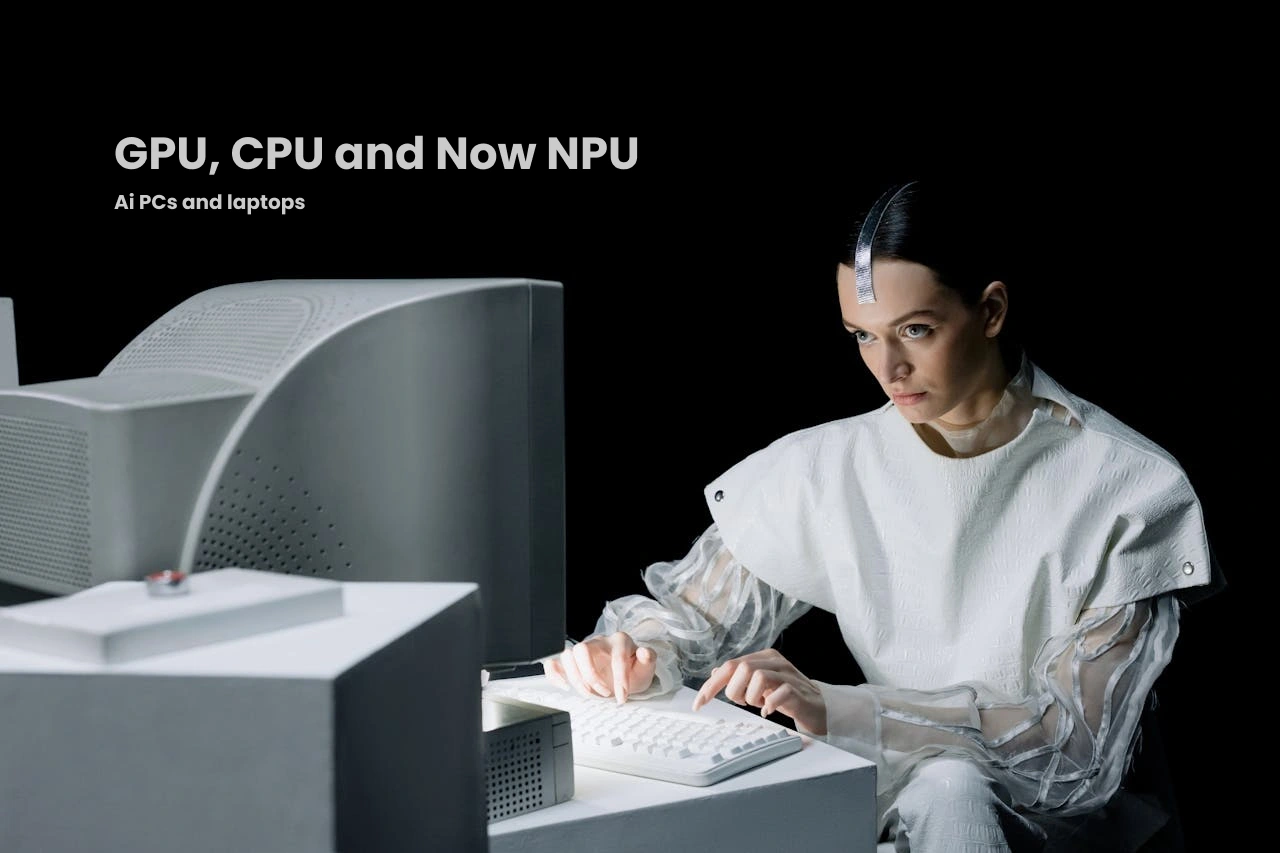The integration of artificial intelligence (AI) into computing devices has ushered in a new era of technological advancement. AI-powered PCs and laptops are rapidly transforming the way we interact with technology, work, and create. In this comprehensive guide, we will delve into the intricacies of AI PCs and AI laptops, exploring their key features, benefits, and implications for the future.
What is an AI PC or Laptop?
An AI PC or laptop is a computing device that incorporates AI technologies to enhance its performance, functionality, and user experience. These devices are equipped with specialized hardware and software that enable them to process information more intelligently, automate tasks, and make informed decisions.
Key Components of AI PCs and Laptops
- Neural Processing Unit (NPU):
- A dedicated hardware component designed to accelerate AI computations.
- Handles complex mathematical operations efficiently, improving the speed and accuracy of AI tasks.
- Often found in high-end AI devices.
- Advanced Processors:
- Powerful CPUs and GPUs capable of handling demanding AI workloads.
- Provide the computational power necessary for running AI algorithms and machine learning models.
- AI Software and Frameworks:
- A suite of software tools and libraries that enable developers to create and deploy AI applications.
- Includes frameworks like TensorFlow, PyTorch, and Keras, which provide the building blocks for AI development.
- Machine Learning Algorithms:
- Algorithms that allow the device to learn from data and improve its performance over time.
- Used for tasks like image recognition, natural language processing, and predictive analytics.
Benefits of AI PCs and Laptops
- Enhanced Productivity:
- AI-powered automation tools can streamline workflows, reducing manual effort and increasing efficiency.
- Intelligent assistants can help with tasks like scheduling, email management, and document creation.
- Improved User Experience:
- AI-driven personalization features tailor the device to individual preferences, providing a more customized and intuitive experience.
- Voice assistants and natural language processing capabilities enable hands-free interaction.
- Advanced Security:
- AI-powered security systems can detect and prevent cyber threats more effectively.
- Biometric authentication and facial recognition provide robust security measures.
- Creative Tools:
- AI-assisted creative tools can generate ideas, design graphics, and compose music, boosting creativity and innovation.
- Accessibility:
- AI can help individuals with disabilities by providing assistive technologies like speech recognition and text-to-speech.
Real-World Applications
- Gaming: AI can optimize game performance, enhance graphics, and create more immersive gaming experiences.
- Content Creation: AI-powered tools can assist with video editing, image manipulation, and music production.
- Healthcare: AI can analyze medical data to diagnose diseases, develop personalized treatment plans, and accelerate drug discovery.
- Education: AI-powered tutoring systems can provide personalized learning experiences, adapting to individual student needs.
- Finance: AI can detect fraud, analyze market trends, and automate financial tasks.
The Future of AI PCs and Laptops
As AI technology continues to advance, we can expect even more innovative and powerful AI-powered devices. Some potential future developments include:
- Edge AI: AI processing directly on the device, reducing latency and improving privacy.
- Quantum Computing Integration: Accelerating AI computations for complex tasks.
- Enhanced AI Assistants: More sophisticated and intelligent virtual assistants capable of understanding and responding to complex queries.
- Biometric Integration: Seamless authentication and personalized experiences through biometric sensors.
Challenges and Considerations
While AI PCs and laptops offer numerous benefits, there are also challenges to consider:
- Ethical Implications: AI algorithms can perpetuate biases if not carefully trained and monitored.
- Privacy Concerns: AI-powered devices collect and analyze vast amounts of data, raising privacy issues.
- Technical Complexity: AI development and deployment can be complex and resource-intensive.
- Cost: High-end AI devices can be expensive, limiting accessibility.
Conclusion
AI PCs and laptops are transforming the way we interact with technology, offering a wide range of benefits and opportunities. As AI continues to evolve, we can anticipate even more groundbreaking innovations that will shape the future of computing. By understanding the key features, benefits, and challenges of AI-powered devices, we can harness their potential to enhance our lives and drive progress.
